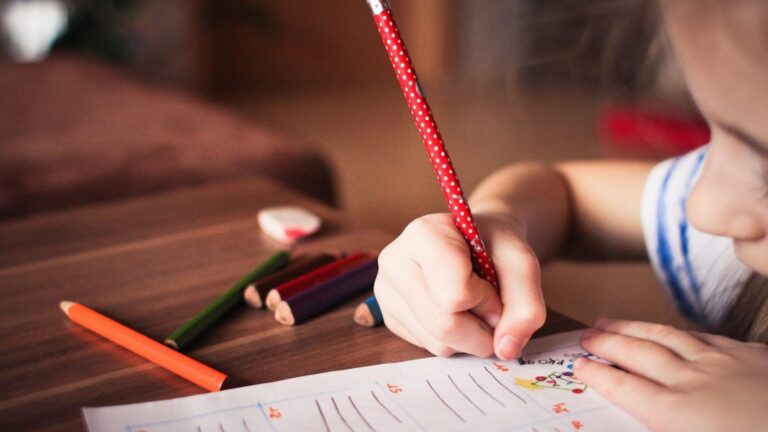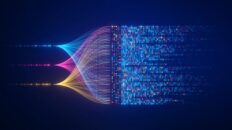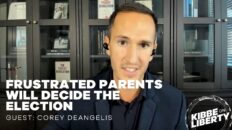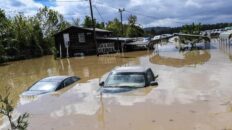Schooling is constrained by government requirements to pay, attend, qualify before teaching, not employ children, segregate children by age, teach specific curricula, and administer specific tests.
Free ourselves from these constraints, and the schooling that individuals will ultimately develop and choose will deliver far-better performance, price, and value-added for everybody.
Building general-purpose expertise
People in childhood through early adulthood can learn a great deal, and have abundant time.
This extended time that’s available for learning would best be used to develop general-purpose expertise of three kinds. Reading delivers the best-available understanding from standout tutors in nearly all subject areas, as focused narrative streams, at personally-customized paces. Writing consolidates information and deepens understanding. Problem solving provides analyses that better-support actions.
An individual deepens his expertise the most in any given period of time through deliberate practice learning the hardest knowledge he’s ready to learn.
An individual’s learning time is abundant, but his learning resources are scarce. The challenge in schooling is to put scarce learning resources to their most-valued uses.
Freeing individuals to produce and shop
People who are learning are individuals, and choose their actions deliberately.
Early on, an individual doesn’t know much, so his choices are limited. Even so, he can already communicate what he finds interesting and when he needs breaks.
Soon, an individual learns some basics in reading, writing, and problem solving. From then on, he can tutor others.
Such peer teaching drove the initial great advances in literacy worldwide. Peer teaching lives on now, providing schooling that’s superior and efficient. Some of the world’s poorest parents pass up tuition-free government schools and instead opt for tuition-charging private schools that thrive on peer teaching.
Peer teaching will do even more good once the peer-teaching individuals who produce the learning are freed to sell this product.
Peer teaching is the first product that individuals can produce in volume.
Producing a product adds value. Selling the product yields earnings. The individual who added the value then shops for products (adding more value) and finally buys products. Producing is the action that increases material well-being.
Each individual should peer teach. He should earn at whatever rate that others will pay for his teaching. Empowered with his parents’ support and his earnings, his parents and he should then shop for and buy the schooling products that their deliberations indicate will help him the best.
Supporting individuals and parents
In an individual’s production of tutoring, his parents’ and his shopping for learning products, and his learning, he will be supported by the balance of the inputs of touch labor:
- Tutoring is presenting information to groups or individuals, and facilitating investigations into subjects by groups or individuals. Individuals producing tutoring will range from other learners who have learned a little more to experts who practice in specific subject areas and love them.
- Consulting will be guidance in selecting among subjects, learning modes, and learning products (particularly books). Consulting will help an individual make wise purchases of learning products.
- Caretaking will be helping people get better-prepared to learn. Caretaking will range from ensuring all individuals’ safety to helping an individual prepare for learning by improving his rest, exercise, nutrition, physical health, and mental health.
- Operations management will be producing testing infrastructure, analyses of how various options might work for each individual, and other infrastructure. Testing is well-proven to enhance memory and learning. Compiling and analyzing test data and other information will suggest what learning is likely to work best for a given individual. Other infrastructure, including information technology, will support various learning modes that make use of print content, video content, or interactive-learning content, whether online or offline.
In addition to support from touch labor, individuals and parents will also have support from intermediate products and facilities.
Intermediate products can include books, interactive learning aids, recorded lectures, dedicated media, and internet resources. Artificial intelligence is being developed rapidly.
Across all intermediate products, even AI, there will be a great increase in innovation that provides meaningful improvements in learning. Innovation will earn increased rewards, since peer teaching will add resources and will also free up resources. Innovation will also be needed to mitigate producers’ increased risks, as shopping will become maximally decentralized—customized by each individual—and relentless.
Facilities will help an individual learn in various settings. Office-like designs will facilitate learning by working alone, in small groups, in larger meeting groups, and in production teams. Sufficiently-open layouts, or suitable technologies, will provide for safety monitoring.
Embracing inequalities to increase opportunities
The scale and pricing of learning operations will vary. Some individuals will receive homeschooling, which provides intensive tutoring and will incorporate the best learning products developed by others.
In all schooling, wealthier parents and children will buy innovations first. Innovations that prove to add more value in an economical-enough way will soon get mass-produced and sold. Such improvements will ultimately reach the poorest individuals, as others voluntarily provide charitable support.
Because of this, such inequality within a given cohort should be embraced. This inequality brings improvements to succeeding cohorts.
Additional inequality between individuals will result from the massive decentralization, as each individual is freed from age discrimination.
On any given subject, an individual will start out learning much the same information that others his age are learning. Soon, though, his unique interests, potential, and effort will lead him to learn different information than others his age are learning. He will lead in some subject areas and trail in others. Freed to learn at his own pace, he will learn more of the hardest knowledge that’s valuable to him and that he’s ready to learn.
This inequality of development should also be embraced. This inequality brings improvements to each individual.
Early in life, each individual will develop expertise and independence. Each will then add more value, generation upon generation.
When people are free, people innovate. Government-free schooling will be world-changing freedom.














Add comment